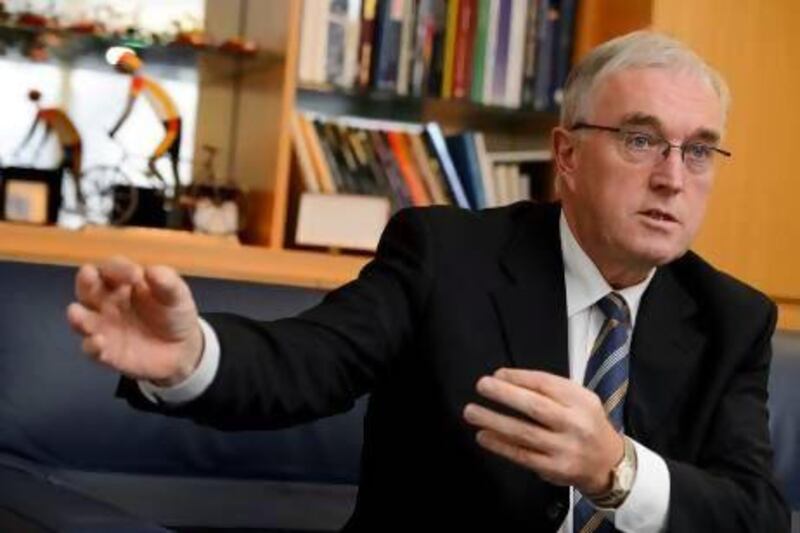The International Cycling Union (UCI) was fault-free in their handling of the Lance Armstrong doping affair that severely tarnished the sport's reputation and triggered harsh criticism of the federation, the UCI president claimed yesterday.
Speaking at an international sports conference in Russia, Pat McQuaid said the UCI had always been at the forefront in the battle against doping during Armstrong's years of domination, from the late 1990s to the mid-2000s.
"I do not think the UCI made mistakes," said McQuaid, who took over as president in 2005, the year of Armstrong's last Tour de France victory.
"The statistics show the UCI was the most advanced in the fight against doping."
Armstrong, a cancer survivor, was stripped of his seven Tour de France titles and banned for life from cycling last year after a report by the US Anti-doping Agency (Usada) accused him of doping for years.
In January, Armstrong admitted in a television interview that he used banned substances in all of his Tour victories.
"I was fooled," McQuaid said.
"I believed there was no way a man so close to death would go and start putting stuff into his body that could be dangerous. My experiences as a cyclist convinced me he was real."
Critics accused the UCI of not doing enough to catch the American, who faced several years of doping accusations.
The Usada report also alleged that the body could have done more.
McQuaid, seeking a third term as UCI president, defended his organisation by saying the UCI had tested Armstrong 200 times between 1999 and 2005, while Usada had conducted only 12 tests.
The Irishman conceded, though, the tests were no match for the advanced methods used by Armstrong.
"There were no tests available for the products," McQuaid said.
"Ten or 15 years ago the armoury against doping was weaker.
"The doping system was weak."
Asked whether he considered resigning over the affair, the Irishman was defiant.
"No, because I firmly believe I am making a difference," he said.
"I want to eradicate doping. I want to see this thing through.
"I want to finish what I started.
"There is a change in the peloton. Every little thing I am bringing in is making a difference."
McQuaid said he was still waiting for was an apology from Armstrong and hoped the American would give back to the sport by helping with inquiries.
"I would like to see him jump on his private plane and come" to UCI headquarters in Switzerland "and say: 'What can I do?' He has not apologised to the sport of cycling," McQuaid said.
"Everyone accepts he has not come clean. If he has information that is valuable to the sport he has to come forward."
"He should sit down and work with us … with Usada and the World Anti-Doping Agency."
McQuaid said cycling would move past the Armstrong affair as the sport continues to expand into new markets despite the whirlwind of negativity the incident brought.
"We will go beyond it," he said.
"Cycling has got new champions and it is getting global. It is growing dramatically.
"I am very positive about cycling and the future.
"Africa, for example has huge potential. It may not have a commercial potential but it has damned good athletes.
"There will be a black African athlete on the podium of a major tour within six years."
Follow us
[ @SprtNationalUAE ]





